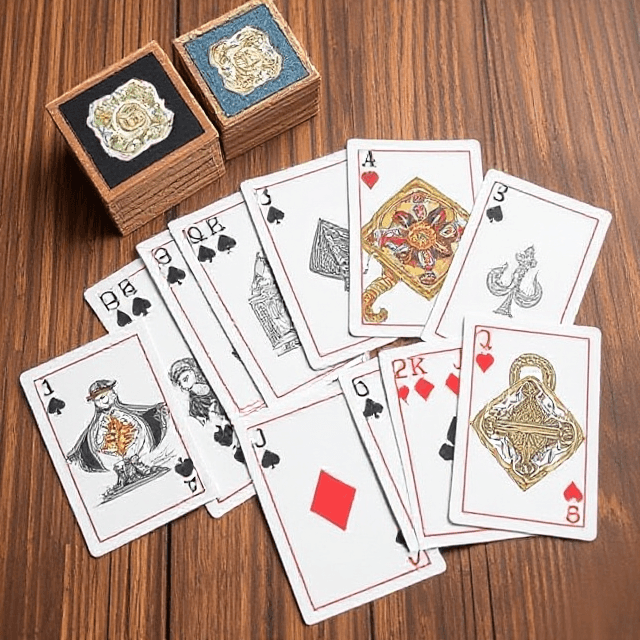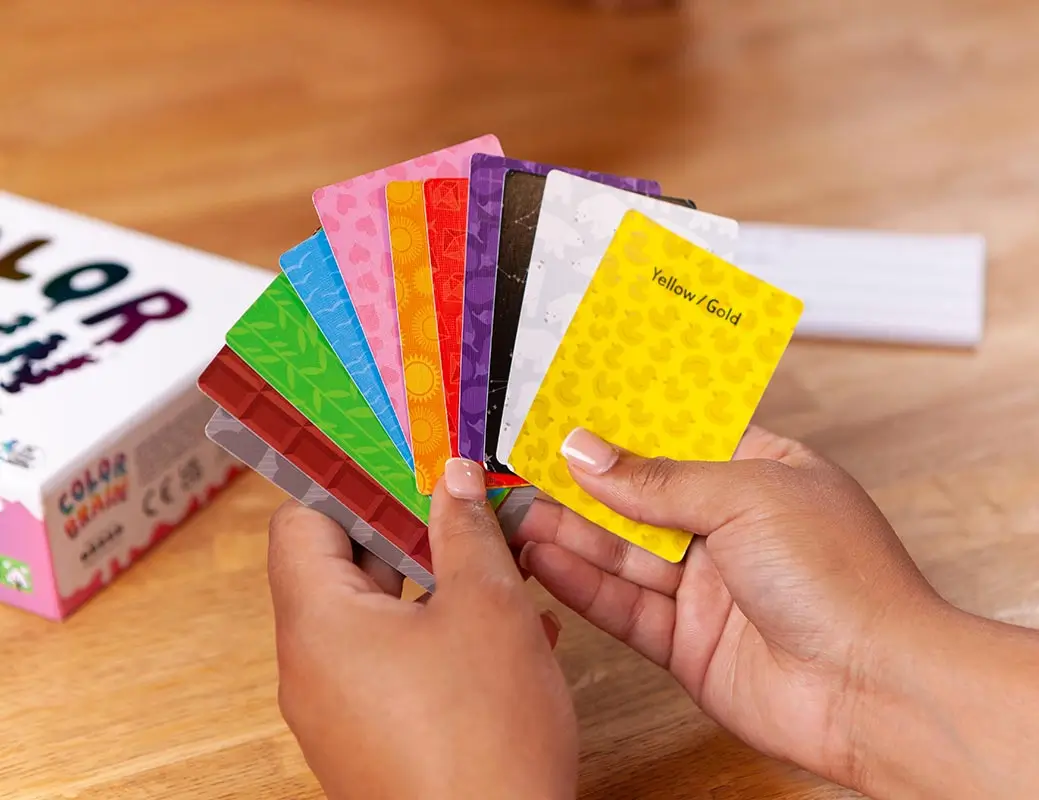Choosing the most suitable paper to print card games on is critical in terms of durability, aesthetics, and usability. Whether producing a trading card game, a private deck, or a board game with cards, the choice of the best paper stock will influence the final quality of your product.
This article explains different paper types employed in card game printing, their characteristics, and how to choose the most appropriate one based on your budget and needs.
Table of Contents

Factors to Consider When Choosing Paper for Card Games
Paper Weight (GSM – Grams per Square Meter)
Select a card stock that is heavy enough to ensure it is durable and long-lasting. Typical card game weights are 250gsm to 350gsm, and higher weights offer higher sturdiness.
- Standard Card Stock: 280-300 GSM (good for casual play and prototypes)
- Premium Card Stock: 310-330 GSM (preferred for professional-grade cards)
- Plastic-Coated Paper: Ideal for added durability and longevity
Card Finish
Consider the finish at the end of the paper, i.e., matte, glossy, or linen. Each finish has its advantages:
- Matte Finish: Provides a smooth, glare-free surface with a professional look.
- Glossy Finish: Provides a shiny surface that accentuates colors and graphics, but possibly more finger-print-prone and glare-prone.
- Linen Finish: Scales a textured surface imitating the feel of linen fabric, which gives it a unique premium touch.
- Smooth Finish: Provides a shiny finish but can be slippery
Core Type (Durability & Opacity)
- White Core: Basic quality, budget-friendly
- Blue Core: Increases durability and opacity (used in professional decks)
- Black Core: Highest opacity, prevents transparency (used in casino-quality cards)
Coating
Adding a protective coating like varnish or lamination can render the cards stronger and airtight and make them immune to water, scratching, and fading.
Texture
The texture of the paper is also what gives the cards their touch. Smooth textures provide an effortless shuffling touch, whereas textured papers provide a tactile touch.
Best Paper Types for Printing Card Games
| Paper Type | GSM | Best For |
|---|---|---|
| 280-300 GSM Standard | 280-300 | Prototypes, casual play |
| 310-330 GSM Premium | 310-330 | Professional decks, frequent use |
| Plastic-Coated | Varies | Waterproof, durable cards |
| Linen-Finished | 310-330 | Smooth shuffling, high-quality feel |
| Black Core | 310-330 | Casino-quality, no transparency |
Cost Considerations
The cost of paper varies based on type and print quantity. Here’s a general breakdown:
| Print Run | Estimated Cost Per Deck |
| 50 | $8 – $15 |
| 100 | $5 – $10 |
| 500 | $3 – $6 |
| 1,000 | $2 – $4 |
Where to Print Card Games
Popular Printing Companies
- The Game Crafter (Great for small print runs)
- PrintNinja (High-quality offset printing for bulk orders)
- Shuffled Ink (Offers a variety of finishes and card stocks)
Conclusion
Choosing the right paper to print card games ensures durability, a professional finish, and optimal playability. Whether you opt for premium cardstock, plastic-coated paper, or linen finish, selecting the optimum material will enhance your game even further. you can talk to a card game printing company can help you select the most suitable paper that meets your game’s requirements and enhances the overall gaming experience of players.
FAQ: best paper to print card games
What is the most durable paper for card games?
Black-core, plastic-coated, or linen-finished card stock offers the best durability.
What is the best paper for printing trading cards?
310 GSM blue-core or black-core linen finish is best for trading cards.
Can I print a card game on regular paper?
Although possible, it’s not recommended because regular paper is not durable and shuffle-able.
